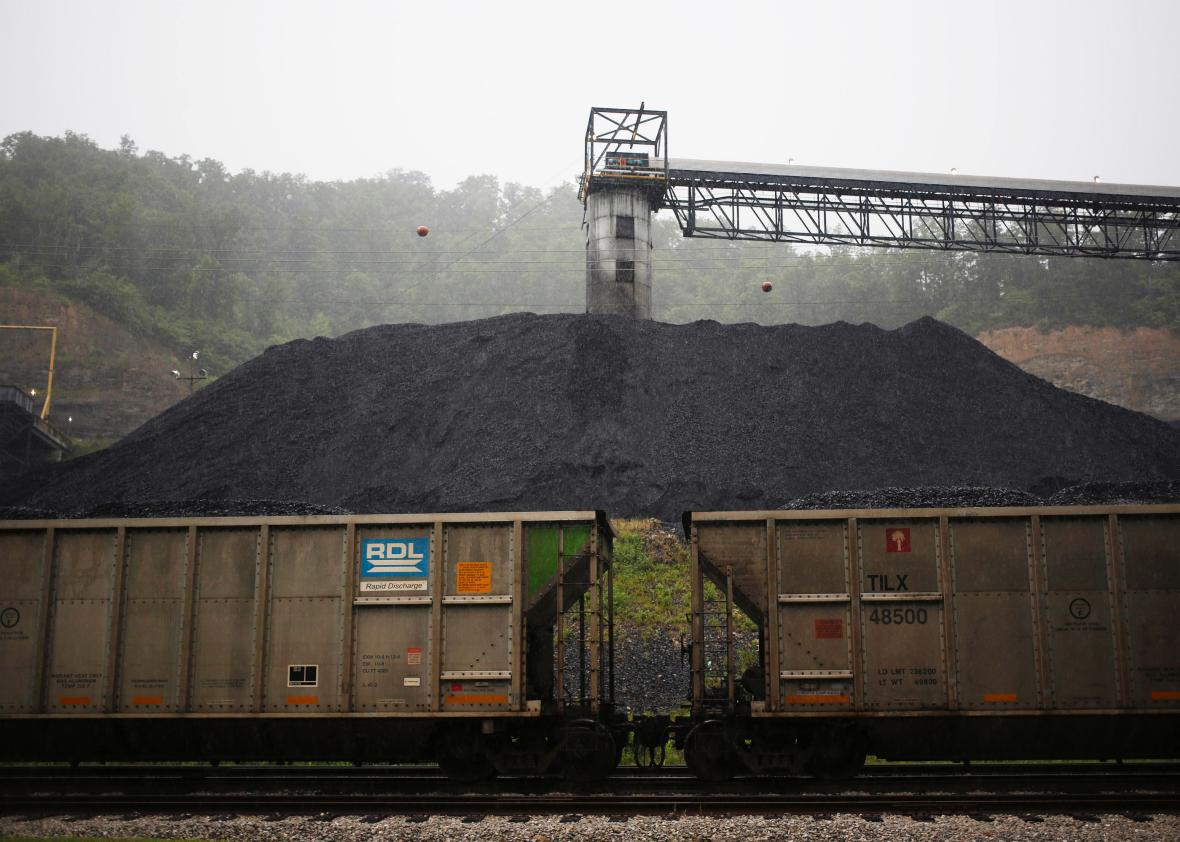On Monday, President Obama presented the final version of his centerpiece climate plan to much fanfare. But despite the bravado with which the plan was announced, it’s not even designed to produce a significant shift in the uptake of renewable energy.
It turns out that the president’s plan just perpetuates business as usual, with natural gas as the biggest winner. In 2030, natural gas will be the dominant source of electricity generation in America, a trend that’s already well underway. Despite the plan’s headline focus on eliminating coal, if you dig into the lengthy text, the targets call for an even slower transition from coal to natural gas over the next 15 years than we’ve had over the last 10. James Hansen, the former NASA scientist who has raised increasingly dire climate warnings, called Obama’s plan “practically worthless.”
Buried on Page 636, the climate plan states that targets are:
…fully consistent with the recent changes and current trends in electricity generation, and as a result, would by no means entail fundamental redirection of the energy sector.
That thought continues on the next page:
We expect that the main impact of this rule on the nation’s mix of generation will be to reduce coal-fired generation, but in an amount and by a rate that is consistent with recent historical declines in coal-fired generation. Specifically, from approximately 2005 to 2014, coal-fired generation declined at a rate that was greater than the rate of reduced coal-fired generation that we expect to result from this rulemaking from 2015 to 2030. In addition, under this rule, the trends for all other types of generation, including natural gas-fired generation, nuclear generation, and renewable generation, will remain generally consistent with what their trends would be in the absence of this rule.
As many observers have pointed out, this is further evidence that the president’s flagship climate initiative won’t do much to cut carbon emissions beyond what’s already happening. In fact, in another telling passage on Page 17 of the full text of the new plan, by 2030, “coal and natural gas will remain the two leading sources of electricity.”
As Politico’s Michael Grunwald notes, that means America’s overall decarbonization will also actually slow over the next 15 years, not speed up, as a result of Obama’s plan. In an op-ed on Tuesday, former New York City Mayor Michael Bloomberg points out that it’s easy to regulate a dying industry: “We are already halfway to the EPA’s goal—seven years before its rules take full effect, and before many of the coal plant closings that are scheduled to happen over the next decade.” Those coal plant closings would have happened without Obama’s new rules, thanks to growing public opposition and economic headwinds. As Bloomberg puts it, “King Coal is dying of natural causes.” In fact, another big coal company declared bankruptcy on Monday, hours before Obama’s plan was announced. Obama’s climate plan fails to meaningfully build on this trend that’s already in place.
To be fair, as Vox’s David Roberts points out, if the economy grows more quickly than expected over the next 15 years, the president’s plan will help lock in coal’s downward spiral. But that’s little comfort when you realize the monumental importance of quick action that science says is necessary.
Given the current political climate, maybe setting such a low bar for climate action was inevitable. But by boasting about such an incremental change, Obama is actually making it more difficult for truly bold climate action to pass through Congress in the coming years. If Republicans are already putting up such a fight to what is essentially a business-as-usual plan, it’s difficult to imagine they’d put their weight behind a more meaningful one without serious concessions.
